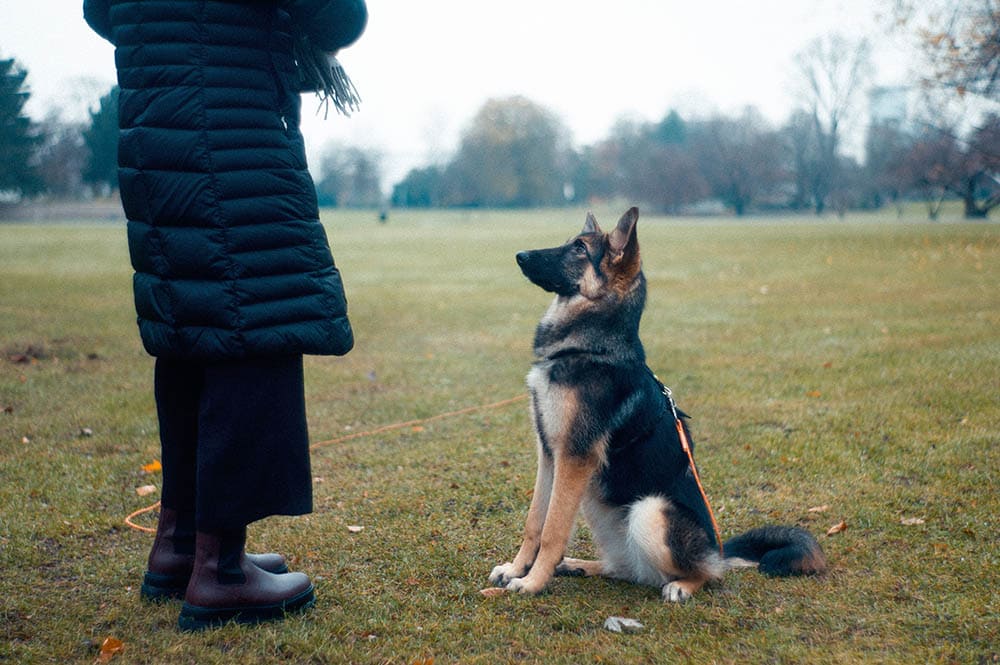Names are a powerful thing, and naming your pet is almost as important as naming a child. Coming up with the right name, on the other hand, can be a thorny, difficult process, and it’s hard to find “the one”—that name that perfectly encapsulates your dog’s unique character and quirks.
Not only that, but you want the name to be one you’re comfortable with saying over and over again because you will say it a lot. To help streamline the naming process and get your name their perfect name, we’ve put together a step-by-step guide on how to choose a dog name, with several important tips to keep in mind when browsing names online.
The 5 Tips on How to Name Your Dog With Confidence
1. Consider Their Characteristics and Temperament
First and foremost, think about the type of personality that your dog has. Are they spunky and feisty? They might be a Boomer or a Foxy. Mellow and aloof? Buddy as a name never goes out of style! It’s true that names are highly subjective, but you can certainly find names that don’t fit your dog. Just look for those rare few that might suit them and try them out. At the very least, you can cross off names that are definite no’s.
Combine this approach with some of the following steps for the best results. An energetic orange dog begs for a fire-related name like Blaze, while a charming little white dog may call for a more delicate name like Angel. Color isn’t always important, but sometimes it can be significant enough to merit a nod in the dog’s name.

2. Stick With Two Syllables
This isn’t a hard-and-fast rule, and you’re free to pick any name you want, but let’s be honest: long names get shortened into cute nicknames, whether it’s a dog or a baby. And doesn’t that sort of negate the purpose of picking a good name in the first place? Let’s look at Chocolate, for example. How many times can you say it in a row before getting sick of it? It doesn’t quite roll off the tongue when you put it that way. Maybe Coco would be a better pick.
To test this, take your short list of favorite names and take note of which are shortest, then say those over and over again, like a tongue twister. If you can do it more than a few times in a row and it still sounds good, you might have a keeper. If your tongue gets tired or it doesn’t quite sound right after that, keep looking.
3. Look at Their Appearance
Other than their personality, a dog’s appearance can be one of the main influencing factors when you pick a name. Some are simply wrong, like calling a white dog Shadow, but others give you much more leeway. Bessie could be a black dog, a white dog, or any other color, for instance. Other than color, you have their physical characteristics to draw from. For example, it would be cute to call a little Chihuahua with huge ears by the name Radar.

4. The Simpler, the Better
Simple names are easier to remember for both dogs and people, not to mention easier to say. That’s not just speaking in terms of long names but weird or exceptionally offbeat names. A short name that’s confusing to others won’t gain much traction, and weird spellings of common names don’t play off as well when it’s your dog.
When it comes down to it, you want something that rolls off the tongue that you don’t have to think about. If you’re having doubts about whether your name is too unusual, ask a family member or close friend what they think. People are usually pretty honest about whether your proposed name sounds good or not because it’s not as high stakes as naming a baby, but it’s still important enough that their opinion is valuable.
5. Don’t Use Common Words
Names like Chase are appealing because they’re basic and easy to say, but take a moment to think about words you use regularly around the house or commands you’ll teach your dog. Kay, for example, is a cute girl dog name, but it sounds strikingly similar to “stay.” Dogs have good hearing and usually pick up the difference between their name and other words, but it can be enough of an issue that you may notice training delays because they’re a little confused about what words you’re saying. Save yourself that trouble and pick a name that doesn’t rhyme or sound too similar to other words you use a lot.

Final Thoughts
Dog names aren’t as harrowing to pick out as baby names, but it’s still a name that your dog will carry their whole life. When selecting the right one, it pays to remember some of the tips above. Think about their personality, keep it simple, and avoid words you might say around your dog later on. Ultimately, it’s up to you whether you follow these rules or not, but they’re solid rules of thumb that will help avoid picking a real stinker of a name for your pup.
See Also:
Featured Image Credit: Kampus Production, Pexels












